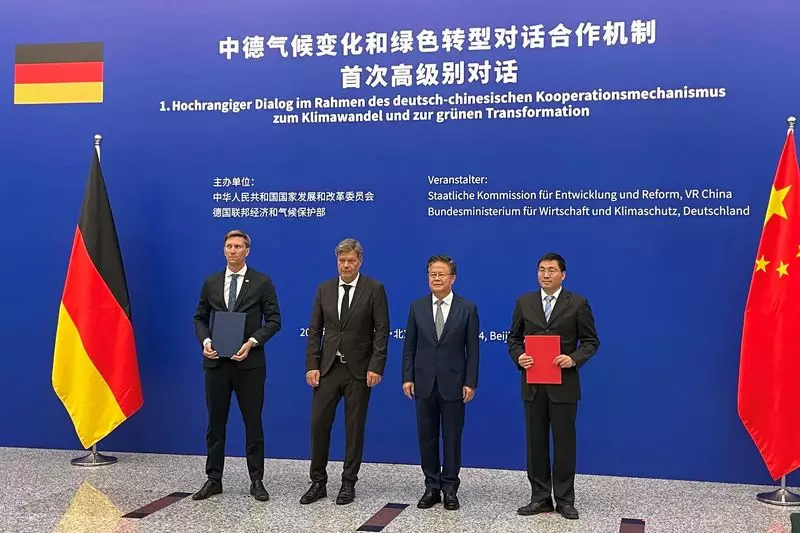Germany’s Economy Minister Robert Habeck visited China and emphasized that the European Union is willing to engage in discussions regarding EU tariffs on Chinese exports. He conveyed that the message of open dialogue was well received by his Chinese counterparts, highlighting the importance of maintaining open markets while ensuring a level playing field for all stakeholders involved.
Challenges Ahead
Despite the willingness to engage in discussions, challenges remain, especially in light of Brussels’ proposed tariffs on Chinese-made electric vehicles (EVs) to counter what the EU considers excessive subsidies. The timeline for these discussions is crucial, as the provisional duties are set to take effect in July, with definitive duties potentially lasting for five years. This sets the stage for negotiations and the need for constructive dialogue between the EU and China.
Not a Punishment
Habeck clarified to Chinese officials that the proposed EU tariffs were not punitive measures, unlike those adopted by other countries like the U.S., Brazil, and Turkey. The European Commission’s thorough examination of potential unfair subsidies aimed to ensure a level playing field for all companies involved. Any countervailing duties resulting from this review are meant to compensate for the advantages granted to Chinese companies, rather than impose punitive sanctions.
China’s Response
China’s stance on the proposed EU duties is clear – to protect its companies and refute accusations of unfair subsidies. Zheng Shanjie, Chairman of China’s National Development and Reform Commission, emphasized that the development of China’s new energy industry was due to technological advancements, market forces, and industry supply chains, rather than unfair competition or subsidies. He urged Germany to take a leadership role within the EU and make informed decisions regarding the tariffs.
Amidst the discussions, there is room for manoeuvre and negotiation on both sides. Chinese Commerce Minister Wang Wentao expressed willingness to engage with EU Trade Commissioner Valdis Dombrovskis in addressing the tariff concerns. Habeck acknowledged this room for discussion and hoped that both parties would seize the opportunity for constructive dialogue to reach a mutually beneficial agreement.
In response to the potential tariffs, Chinese carmaker SAIC Group showcased a range of creative products, including skateboards, hoodies, and sneakers emblazoned with the EU emblem and the figure “38.1” – a reference to the level of the EU’s proposed tariffs. This innovative response underscores the importance of adapting to changing trade dynamics and finding creative solutions in the face of challenges.
The open door policy maintained by the EU towards discussions on tariffs with China sets a positive tone for constructive dialogue and negotiation. While challenges and differing viewpoints exist, it is essential for both parties to engage in meaningful conversations to address concerns and find mutually acceptable solutions. The willingness to listen, understand, and find common ground is key to fostering strong trade relations between the EU and China in the long run.

